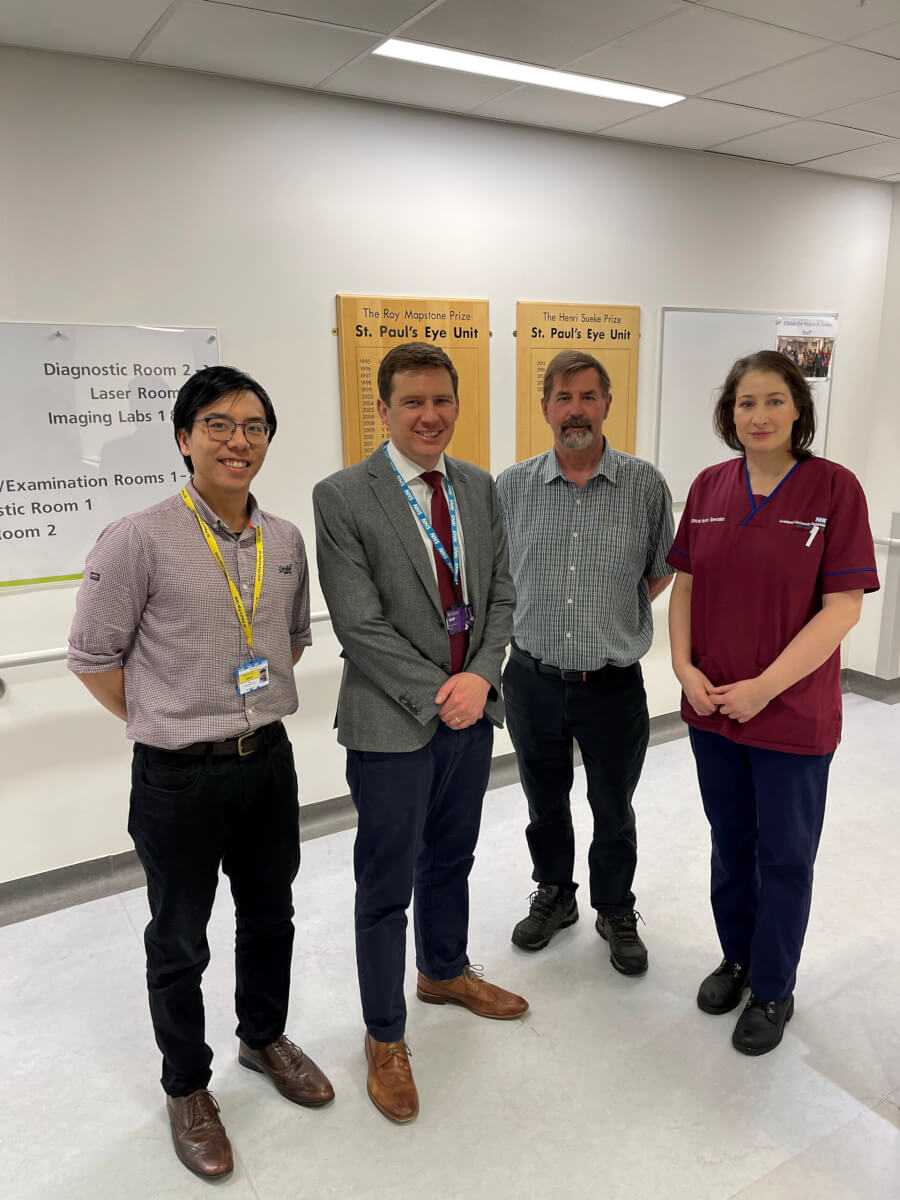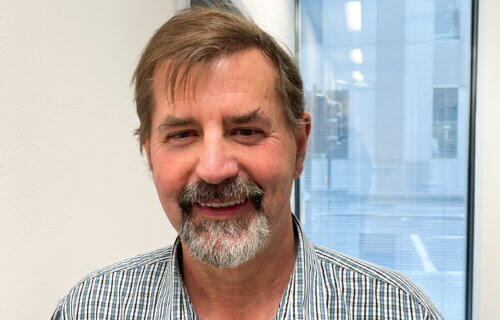LIVERPOOL, United Kingdom — A grandfather in the United Kingdom has become the world’s first recipient of a new medication that could prevent blindness. Steve Gotts, 63, who has lived with diabetes for 30 years, is at risk of developing diabetic maculopathy, a condition caused by an excessive build-up of fluid in the retina.
This condition can result in blurred vision and potentially lead to loss of eyesight. Until now, it could only be treated with injections or laser surgery targeting the back of the eye. Gotts was the first among 24 global participants to receive a dose of Danegaptide, a tablet-based medication designed to mitigate the condition’s effects.
Expressing optimism, Gotts says, “I’m looking forward to the future,” noting that the threat of blindness jeopardized his ability to witness his grandchildren’s growth.
“I’ve been struggling to manage my diabetes for a long time, and the team at the hospital have helped me control my symptoms,” the 63-year-old adds in a statement. “However, looking to the future, the prospect of going blind due to my condition and not seeing my grandchildren grow up made me want to take part in a clinical trial.”
Steve is a keen golfer and spends his free time building complex scale model figurines, which is something he couldn’t do if he developed diabetic maculopathy. He says he is proud to be the first patient in the world to try the treatment, which he received thanks to the Liverpool University Hospitals NHS Foundation Trust.
Why Does Diabetes Cause Blindness?
- High blood sugar levels: Chronic high blood sugar (glucose) levels in diabetes can damage the blood vessels in the retina — the light-sensitive layer at the back of the eye. This damage can cause vision loss and, ultimately, blindness if not treated.
- Increased risk of cataracts: People with diabetes are more likely to develop cataracts, a clouding of the eye’s lens that obstructs vision. High glucose levels can lead to the accumulation of sorbitol in the lens, which affects its clarity and function.
- Glaucoma risk: Diabetes doubles the risk of developing glaucoma, a group of eye conditions that damage the optic nerve, the vital link between the eye and the brain. Glaucoma often has no symptoms in its early stages, but it can lead to irreversible vision loss if not managed.
“The opportunity to join the trial came at the perfect moment. Not only was it available to me, based on the stage of my condition, but it is also available in my hometown of Liverpool,” the retired scientific officer adds.
“Receiving the treatment was seamless. The unit and the research staff supporting me were lovely and have continued to monitor me at weekly appointments over four weeks. It’s been a great experience.”
“The treatment options currently available to diabetic patients are very invasive,” Gotts explains. “So I am glad I can play my part in hopefully replacing this with much gentler treatment and benefit from the treatment myself.”
Dr. Phil Burgess, an honorary consultant ophthalmologist at the hospital where Gotts received this groundbreaking medication, says he was elated to be part of the trial.
“We are so proud to be the first clinical team in the world to administer this new treatment for diabetic maculopathy and bring this study to our patients here in Liverpool and beyond,” Dr. Burgess says.

“This new drug could mean that injections into the back of the eye may not be necessary for patients suffering with this condition, instead replacing this with a tablet-based treatment – which is a much more comfortable treatment for patients. Researchers and clinicians have been looking for a long time for a treatment that can be done at the early stages of the disease before a patient’s eyesight has begun to deteriorate,” Burgess continues.
“Current treatments can only be carried out at later stages of the condition, which can place a significant burden on patients. The medication will be taken for a month and patients will continue to be closely monitored by clinical teams to ensure that patients are continuing to react well to the treatment.”
“As a team, we are elated that we can bring such cutting-edge research to our patients through the hard work and dedication of the research staff at St Paul’s CERC,” Burgess concludes. “We look forward to seeing the results of the next phase of this clinical trial.”
SWNS writer Izzy Hawksworth contributed to this report.
